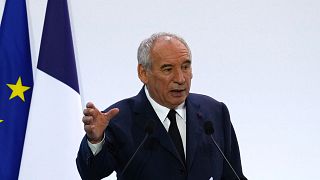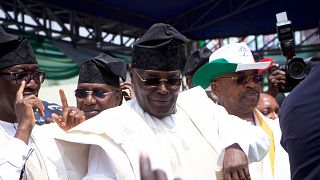Nigeria
The Nigerian government and international oil companies are trying to find a common ground on a dispute over oil revenues.
Citing a 2018 Supreme Court decision, the government says it is entitled to $62 billion from companies after they failed to comply with a 1993 law that gives the state a larger share of revenues when oil exceeds $20 a barrel.
The companies have questioned this.
“We have opened a process of engagement between the parties,” Justice Minister Abubakar Malami said at his Abuja office late Saturday.The government hopes to see whether this will lead to opening up a full-blown negotiation process.
Under the production sharing legislation, companies agreed to finance the development of deepwater oil fields on the assumption that they would share the benefits with the government after recovering their costs. Crude oil was selling at $9.50 a barrel when the law came into effect 26 years ago, and is now trading above $60 in London.
President Muhammadu Buhari is trying to bolster government funds after crude output and prices fell.
The country with the highest GDP on the continent depends on oil for at least two thirds of its revenue and more than 90% of foreign-currency income.













01:27
New sanctions from EU and UK target Russia's energy sector and military intelligence
Go to video
Drone strikes target oil fields in Iraq’s Kurdish region
01:00
Pix of the Day: July 16, 2025
00:52
Nigeria's former president Buhari laid to rest in his hometown of Daura
01:00
Pix of the Day: July 15, 2025
02:03
Muhammadu Buhari's legacy: higlight of his presidential tenure